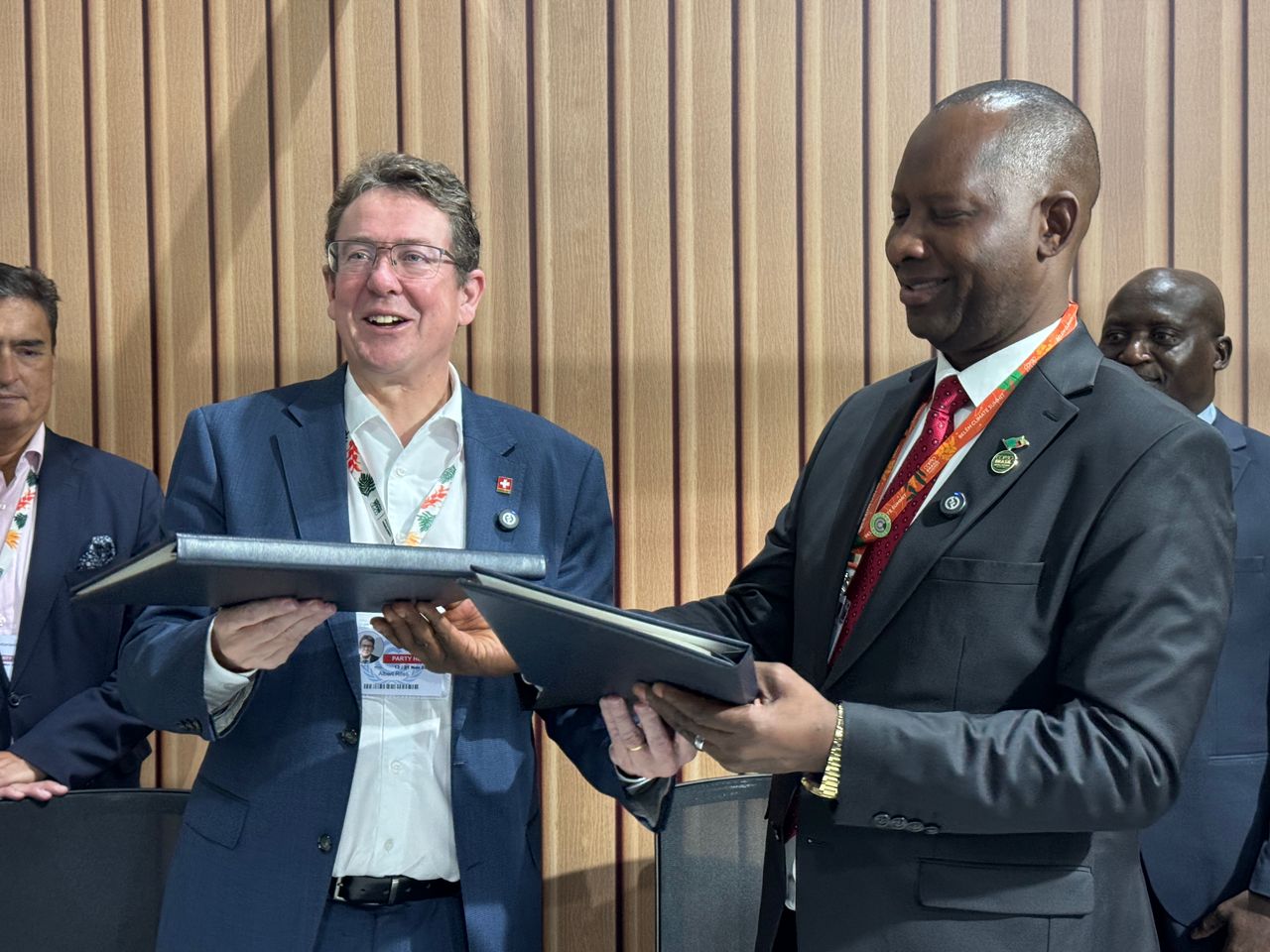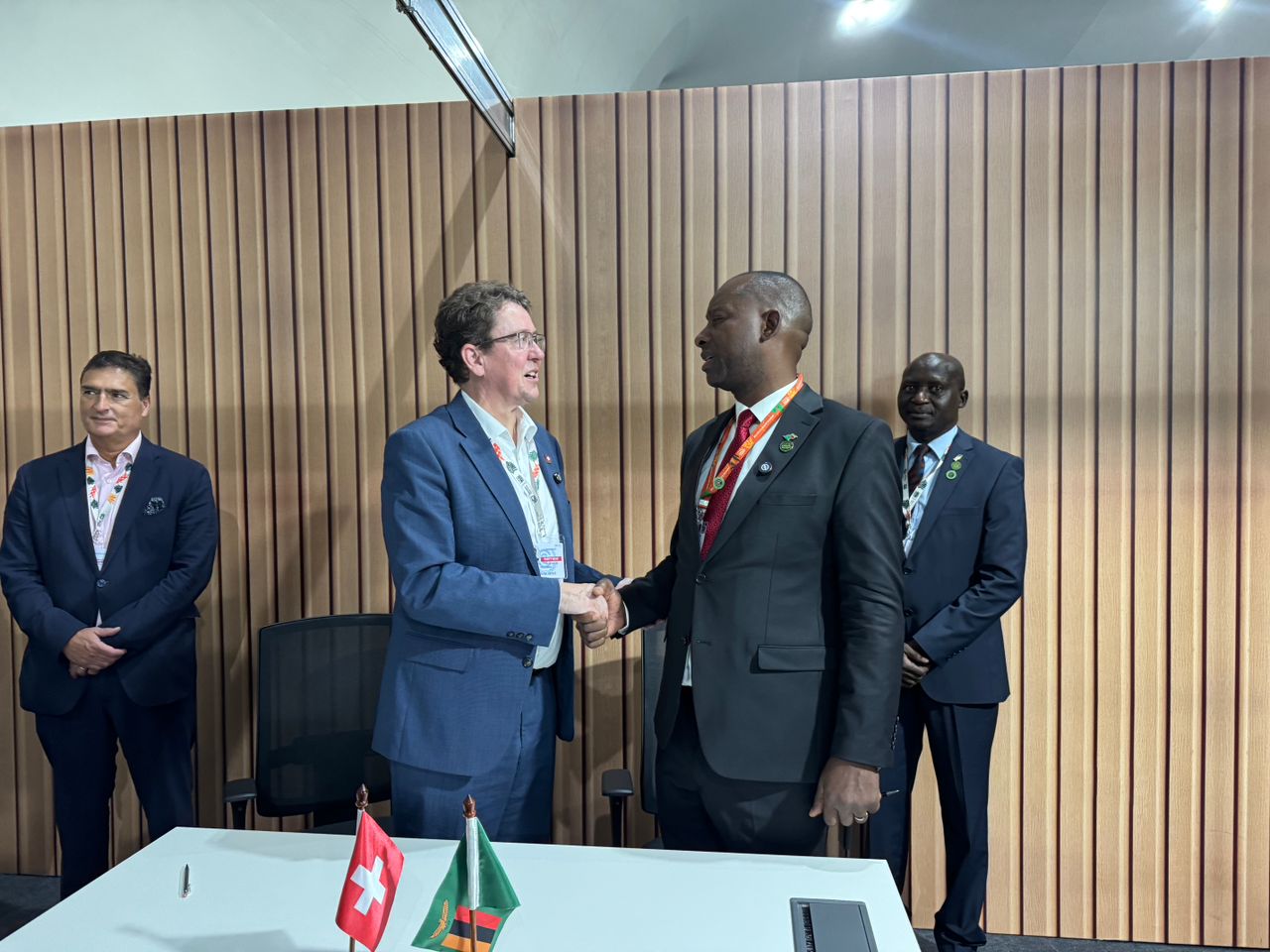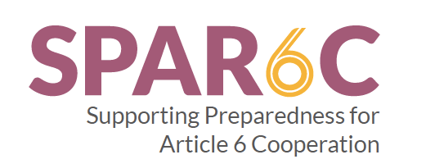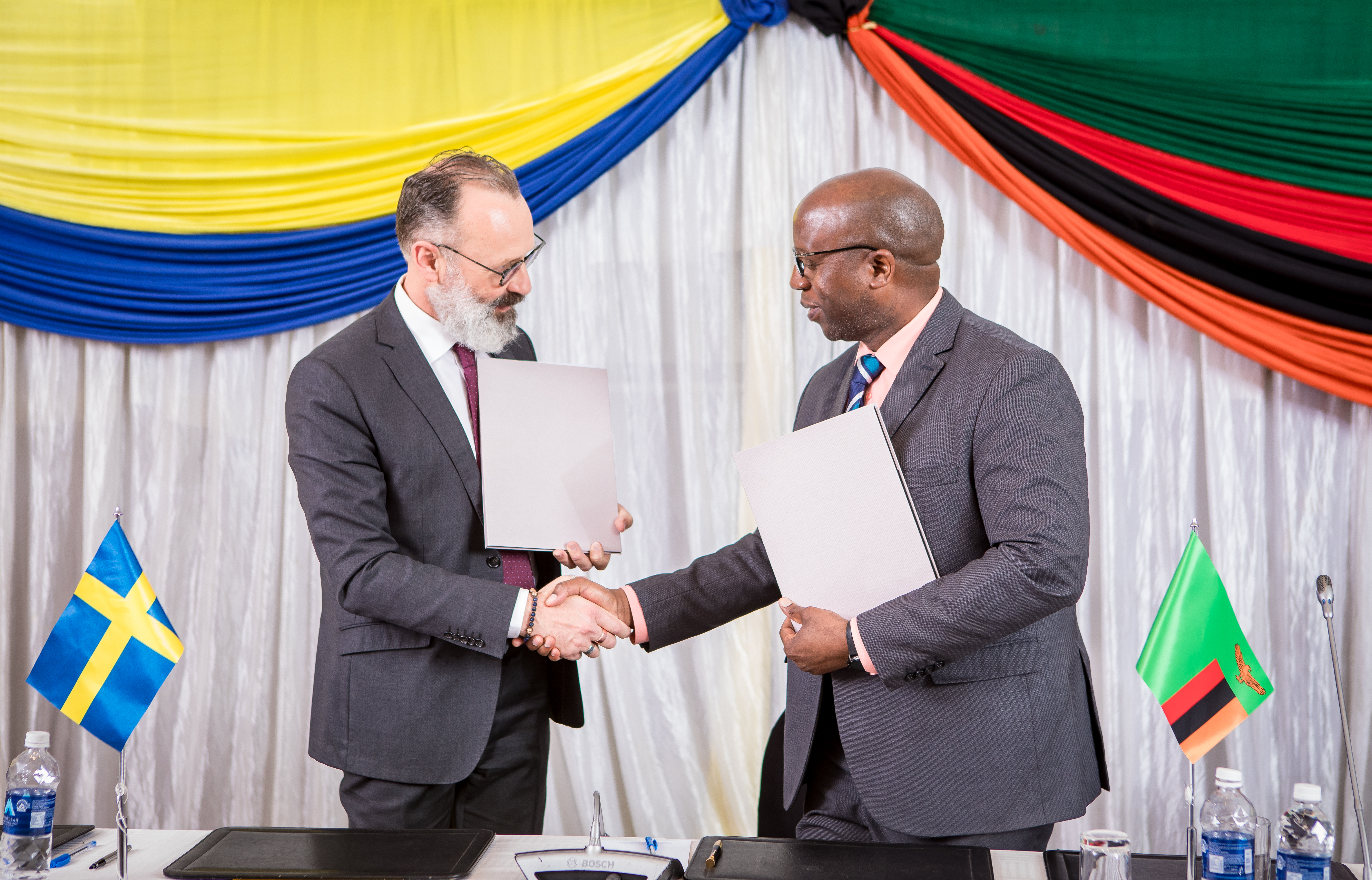Taking further steps towards a greener economy, Zambia, represented by the Ministry of Green Economy and Environment (MGEE) has signed a Bilateral Agreement for cooperation under Article 6 of the Paris Agreement with Switzerland, represented by the Federal Department of the Environment, Transport, Energy and Communications (DETEC).
This new Bilateral Agreement will help the two countries implement cooperative approaches under Article 6, such as establishing frameworks for trading carbon credits and providing carbon financing for projects in Zambia.
SPAR6C support enabling mitigation in key sectors
The Bilateral Climate Agreement was signed at COP30 with support from the Supporting Preparedness for Article 6 Cooperation (SPAR6C) programme, funded by the German government through its International Climate Initiative. The SPAR6C program is globally implemented by the Global Green Growth Institute, with GFA Consulting Group and UNEP Copenhagen Climate Centre as the leading delivery partners in Zambia.

“We believe that the signing of this Bilateral Climate Agreement with the Swiss government today will take us a step further towards seeking increased investments in Zambia’s mitigation activities,” commented Hon. Mike Mposha, Minister of Green Economy and Environment, Zambia.
Zambia and Switzerland reiterated the importance of achieving this critical milestone for negotiating the purchase of Internationally Transferred Mitigation Outcomes (ITMOs) which will pave the way for mitigation activities in Zambia’s key NDC sectors.

“By concluding these agreements, Switzerland is laying the groundwork for international climate projects that meet stringent environmental protection requirements while respecting international human rights standards,” said Minister Albert Rösti, Head of the Federal Department of the Environment, Transport, Energy and Communications DETEC, Switzerland.
Supporting preparedness for Article 6 in Zambia since 2022
The SPAR6C programme has also assisted the establishment of Zambia’s legal and institutional framework for Article 6 as a necessary precondition for putting the Bilateral Agreement in practice. As the programme moves forward it remains committed to supporting the public and private sectors in Zambia to access carbon finance, with an increasing focus on developing high-quality and integrity carbon projects in the country.




